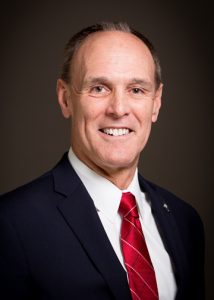By Autumn Shelton, WV Press News Sharing
CHARLESTON, W.Va. – During their April interim meeting on Sunday, members of the West Virginia Legislative Joint Commission on Economic Development heard policy recommendations that, if put into place, may help continue to attract business and grow the state’s economy.
Of those recommendations, provided by West Virginia Department of Economic Development Secretary Mitch Carmichael and Executive Director Michael Graney, speciality program funding and site readiness were at the top of the list.
According to Carmichael, the $31 million investment into the Seal the Deal Fund, created to help West Virginia compete against other states for business recruitment, has been utilized to an “incredible extent.”
“We have created, with this money, over 1,000 jobs,” Carmichael said, adding that continued access to these funds is “a key component to the future of our state in terms of our economic growth.”
In addition to job creation, at least 1,500 jobs were retained, Graney noted. He suggested that the legislature continue to find ways to invest in that fund.
“Funding it again would really give us the tools we need to go out and attract the big manufacturers who employ a lot of people, who then create a lot of small business and entrepreneurship activity surrounding them,” Graney said.
Graney continued that the state should also consider additional funding to support the Small Business Development Center (SBDC) and the Small Business Innovation Research and Small Business Technology Transfer Fund (SBIR/STTR), which provides matching grants to eligible small businesses.
“Just in the last 12 months, we’ve been able to leverage about $500,000 in investment to those small operations and research projects into $11 million in federal funding,” Graney said. “That’s pretty successful.”
He also recommended the creation of a $20 million risk capital access fund, managed by a venture capitalist group, to “evaluate risk with equity in a new business.”
Carmichael and Graney also explained that the state should consider funding about three to four new positions in the Department of Economic Development due to the need for specialists who understand battery production, rare earth minerals and solar and wind energy industries.
Carmichael also stressed the need for the state to have sites that are considered ready for development.
“We need ready sites,” Carmichael said. “That’s an impediment to West Virginia’s growth and development. There is a lot of interest in West Virginia, but we need sites.” He noted that site readiness includes access to basic infrastructure, including broadband.
“Broadband continues to be an issue, although investments have been made,” he continued. “Five to six thousand dollars hooks a customer up to broadband, so when calculating monies, calculate on that basis.”
Graney added that legislation was recently passed for the Certified Site and Development Readiness Program, but it wasn’t funded.
“So, we are hoping you will fund it at the end of the session, at the end of the budget year, because it’s very important.” He recommended $100 million in funding.
One site that should be a priority for the state is the old Century Aluminum site in Ravenswood, Carmichael said. That site would cost about $17 million to be made ready for investors, with an additional $10 million for water and sewer access.
Other factors for continued economic growth were also discussed, including stabilizing the ever increasing electrical rates, continuing support for creating a well-educated workforce, providing affordable housing and addressing childcare needs.
In response to a question from Del. Kayla Young, D-Kanawha, about what companies are saying in regards to childcare as a factor for coming to West Virginia, Graney said that companies, like recent investor Nucor Corporation in Mason County, are looking for childcare centers.
“Anybody that has large employment needs an on-site childcare facility,” he explained. “It needs to match up with their hours of operation,” adding that “we need to solve those problems.”
Carmichael said that one person has been employed by the SBDC to assist in the “regulatory hurdles that are occurring with putting in place a child care facility.”
“It’s a pretty onerous process,” he admitted.
Sen. Patricia Puertas Rucker, R-Jefferson, agreed that state DHHR child care regulations are “strenuous.”
“There was a tragic fire that happened like 10 years ago, and it’s really sad,” Rucker stated. “That fire was used as an excuse to add all of these extra regulations to ensure that nothing like that would ever happen again. Some of it is common sense and some of it is not. So, it’s just a question of being able to have an honest discussion that doesn’t result in this emotional response. But, I will tell you that it definitely has closed daycare centers down and it definitely raises the cost of starting new day care centers.”
Carmichael concluded that while his department cannot make legislative decisions, he said they may serve as advocates for increasing access to childcare centers and to ensure that the state increases their portfolio regarding renewable energy sources, which is something that investors are looking for as well.






